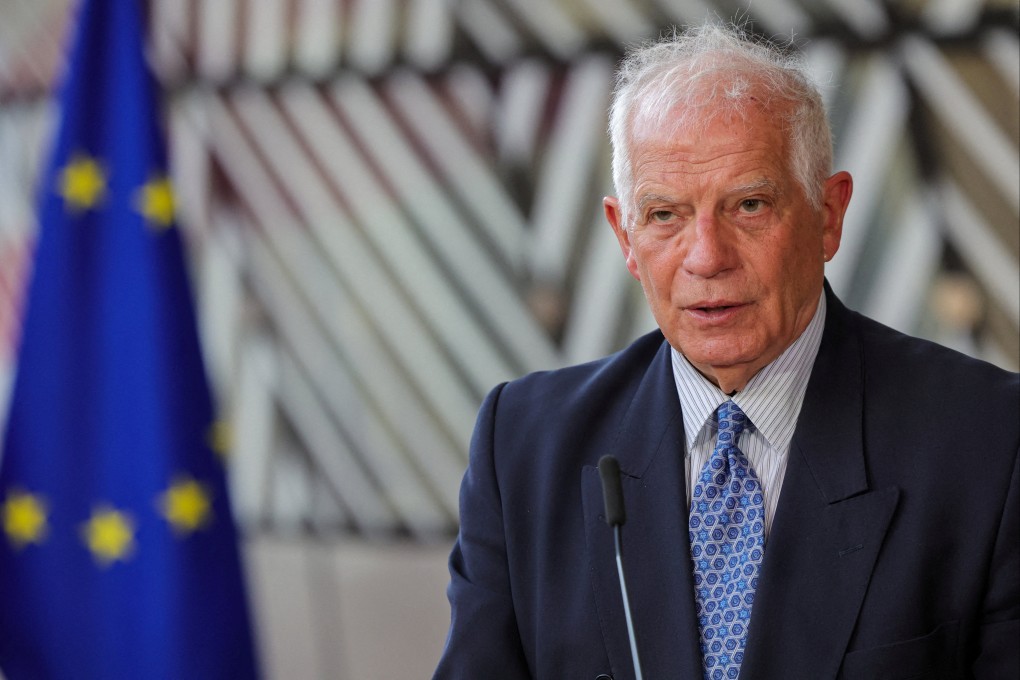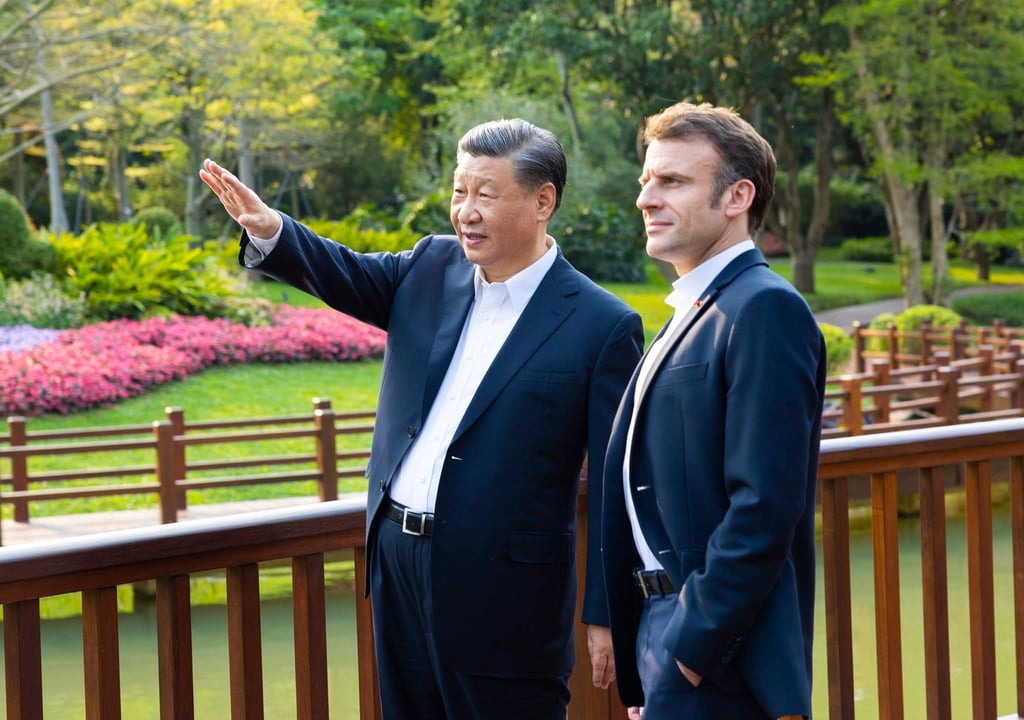As Macron’s Taiwan remarks fester, top EU envoy must try to project unity in China
- Josep Borrell, the European Union’s chief diplomat, arrives for talks this week in Beijing on a variety of issues
- French President Emmanuel Macron has made his trip more difficult, undercutting claims of a unified EU front on China policy

When he lands in Beijing this week, Brussels’ top diplomat Josep Borrell will be charged with a near-impossible task: putting a united face on the European Union’s China policy.
The 27 members of the bloc find it notoriously difficult to forge a consolidated approach to the world’s second-largest economy, which is its largest trading partner even while being classed as a “systemic rival”.
But the scale of the challenge has grown mightily in recent days, after divisions were thrust under a microscope by politicians on both sides of the Atlantic.
On a flight from Beijing to Guangzhou last week, French President Emmanuel Macron told reporters that the EU should avoid becoming a “vassal” of the United States on China, especially urging distance concerning any potential military defence of Taiwan.

The remarks earned rebukes from US lawmakers including Senator Marco Rubio of Florida, who suggested that if Macron was speaking for the rest of Europe, then the US should reconsider its support for Ukraine in its war against Russia.
There was a backlash in Europe, too.